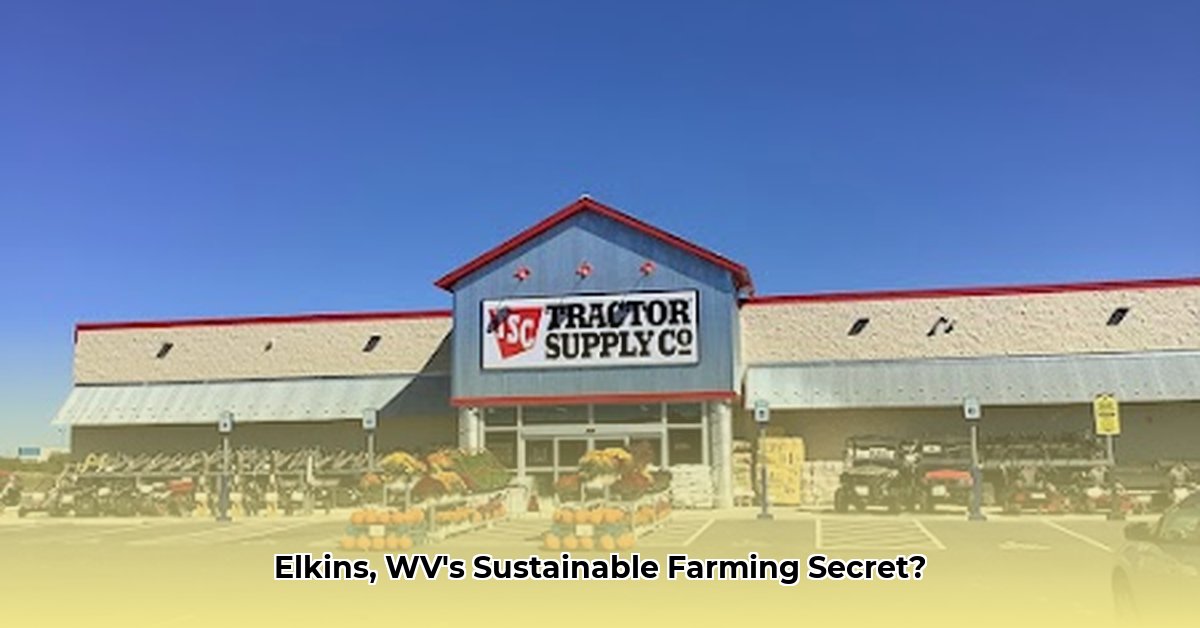
Tractor Supply in Elkins, WV: A Sustainable Farming Resource?
Finding the right resources is crucial for sustainable farming, whether you’re a seasoned farmer or a weekend gardener. Tractor Supply in Elkins, West Virginia, offers a convenient one-stop shop for various agricultural needs, from animal feed to farm equipment. But how effectively does this convenience translate into truly sustainable farming practices? This article explores Tractor Supply's role in supporting sustainable agriculture in Elkins, WV, highlighting both its strengths and limitations. We'll examine product offerings, community engagement, and offer actionable steps for individuals and the company to embrace more sustainable practices. For similar resources in other areas, check out this example store.
Understanding Sustainable Farming in the Context of Elkins, WV
Sustainable farming isn't simply about using organic products; it's a holistic approach encompassing responsible resource use, waste reduction, and environmental impact minimization. This includes understanding the complete supply chain: where products originate, how they're packaged and transported, and how their waste is managed. While Tractor Supply provides access to essential supplies, greater transparency regarding product origins and environmental impacts is needed for a complete assessment of its contribution to sustainable agriculture in the Elkins area.
Three Pivotal Points for Sustainable Agriculture in Elkins:
- Supply Chain Transparency: Knowing the origins and environmental impact of products is crucial for informed decision-making. Lack of readily available information limits the ability to fully assess the sustainability of many options.
- Community Engagement: A collaborative effort involving Tractor Supply, local farmers, consumers, and the local government is essential for promoting sustainable practices.
- Product Selection and Education: While Tractor Supply offers a wide range of products, a more focused selection of clearly labeled and sustainably sourced options, coupled with educational initiatives, would greatly benefit the community.
Actionable Steps Towards a Greener Future
Building a sustainable agricultural community requires a multifaceted approach. Here are concrete steps for several key stakeholders:
1. For Tractor Supply:
- Implement a comprehensive product sourcing audit (within 1 year): Trace products back to their origins to understand their environmental impact. This includes evaluating packaging materials and transportation methods. Efficacy Metric: 100% of top-selling agricultural products audited.
- Develop a transparent labeling system (within 3 years): Clearly label products indicating their sustainability credentials, including sourcing information and environmental impact data. Efficacy Metric: 75% of products will have clear sustainability labels.
- Partner with local farmers and organizations (ongoing): Collaborate on educational programs and workshops focusing on sustainable practices. Efficacy Metric: At least three workshops per year.
2. For Local Farmers:
- Engage with Tractor Supply staff: Actively inquire about sustainable product options. Discuss specific needs and seek recommendations for ecologically friendly alternatives.
- Explore diversified sourcing strategies: Network with other local farmers and consider alternative suppliers like regional feed mills or online marketplaces specializing in sustainable products.
- Participate in educational opportunities: Attend workshops and training sessions offered by organizations like the West Virginia University Extension to improve sustainable farming practices.
3. For Consumers:
- Make conscious purchasing decisions: Choose sustainably sourced and locally produced products whenever possible. Examine product labels carefully, focusing on transparency and sustainability claims.
- Advocate for change: Communicate your preferences to retailers like Tractor Supply, encouraging them to expand their selection of sustainable products.
- Support local farmers: Purchase agricultural goods directly from local farmers, supporting sustainable farming practices in the community.
4. For Local Government:
- Implement incentive programs: Offer tax breaks, subsidies, or grants to incentivize the adoption of sustainable farming techniques by local farmers.
- Partner with Tractor Supply and local organizations: Collaborate on initiatives to support sustainable land management and biodiversity conservation.
- Promote educational resources: Provide easy access to information and resources on sustainable farming practices for local residents.
Addressing Challenges and Opportunities
Moving toward a truly sustainable agricultural system presents inherent challenges. Careful consideration and proactive strategies are needed to address these effectively. For example, fluctuating consumer demand for sustainable products requires targeted educational campaigns to highlight the long-term benefits. Competition from other retailers can be countered through unique sustainable product offerings and exceptional customer service tailored to the specific needs of local farmers.
Conclusion: A Collaborative Path to Sustainability
The future of farming in Elkins depends on a collaborative effort. Tractor Supply has a significant role to play in providing resources and promoting sustainable practices. By working together – farmers, consumers, the store, and the local government – we can build a more sustainable and resilient agricultural community. The journey requires transparency, education, and a collective commitment to responsible land stewardship.